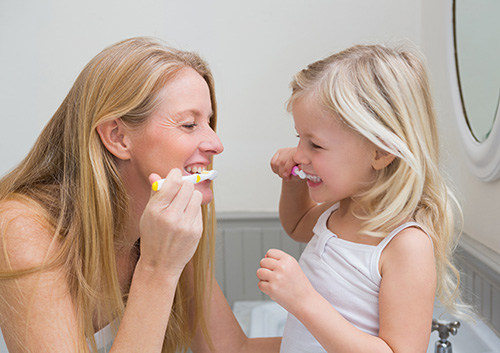Helpful Hygiene Tips for Patients Who Wear Braces
March 5th, 2025

Today, Dr. Ryan Hinckley and our team thought we would offer a few tips for our patients currently undergoing orthodontic treatment. For those of you wearing braces, it’s important to be even more dedicated to good oral hygiene than those not currently in treatment.
After getting your braces, it is important to know how to take care of your teeth in order to ensure that your braces stay intact and do their job so that your teeth are in top-notch condition after you complete your orthodontic treatment.
Braces are known to trap food, which contributes to plaque formation. If it is not carefully removed from the teeth and gums, plaque will develop into decay or gum disease, leading to costly delays during your treatment. It is important to practice good oral hygiene by following instructions from Dr. Ryan Hinckley during your treatment.
We are proud to offer supplies to help fight plaque, such as a proxabrush, dental floss, and floss threaders. The use of an electric toothbrush and or a water pick can also be helpful in combating cavities and decay. And, of course, our team at Berky Hinckley Orthodontics suggests brushing at least twice a day.
We hope that helps! If you have any questions, please give us a call at our High Point or Greensboro, NC office or ask us during your next adjustment appointment!



